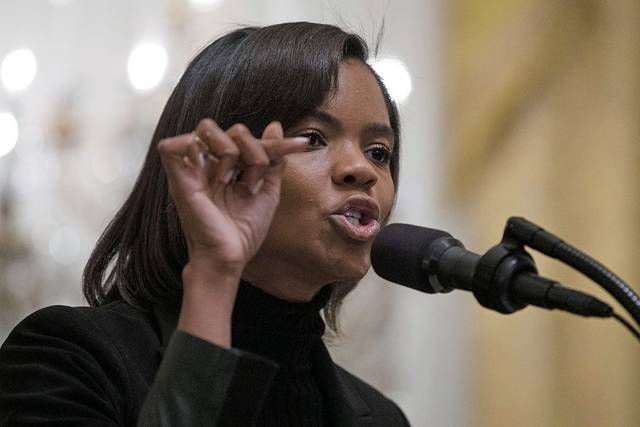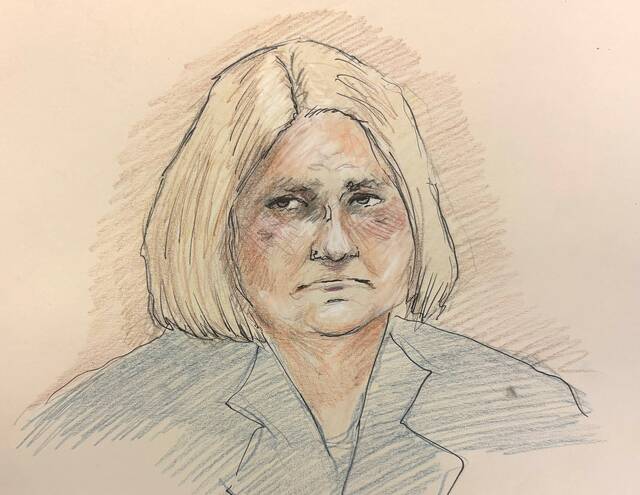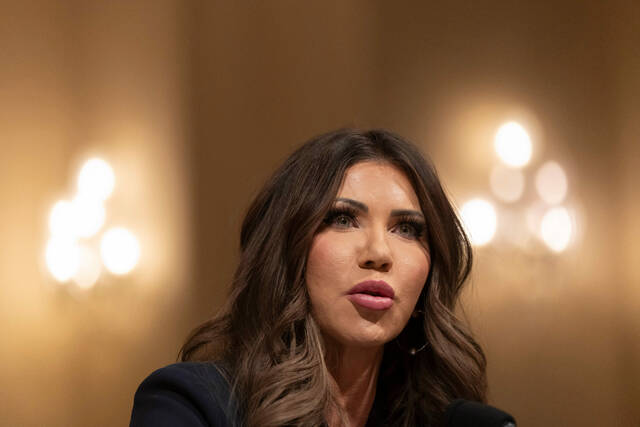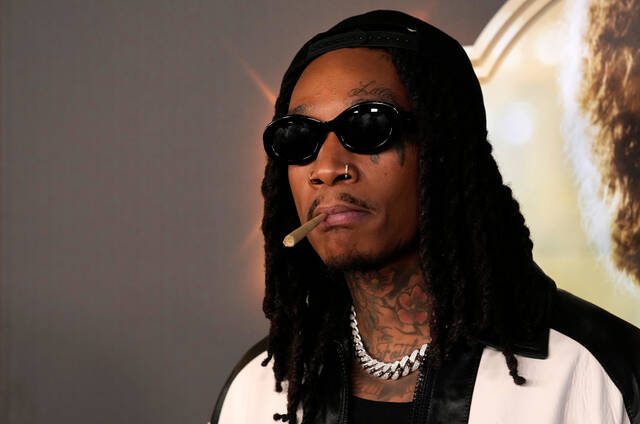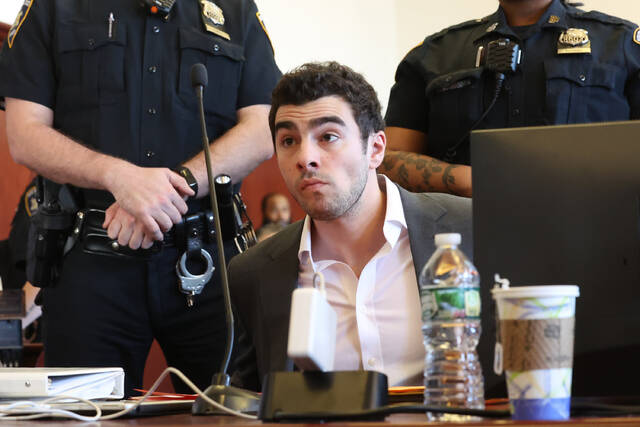WASHINGTON — The White House’s embrace of a prominent Black advocate for President Trump who made inflammatory remarks about George Floyd has caused turmoil among other Black conservatives close to the president, threatening their support for his reelection.
The dispute began this month, shortly after Floyd’s death in the custody of Minneapolis police. Candace Owens, a Black author and pundit known for her aggressive support for Trump and provocative views on race, called Floyd a “violent criminal” and a “horrible human being” in a video she posted on Twitter.
She also criticized Ahmaud Arbery, a Black man allegedly murdered by two armed White men in Georgia in February, accusing him of breaking into homes before he was killed.
Trump has consistently polled in the single digits among Black voters. After Owens’ remarks, which drew criticism from other Black conservatives, Vice President Mike Pence invited her to the White House for a private discussion of U.S. racial divisions. That caused the small community of conservative Black pastors, Republican strategists, businesspeople and celebrities who act as public surrogates for Trump, advocating his reelection, to nearly rupture, according to interviews with several of them.
“We’re all in damage-control mode right now,” said Angela Stanton-King, a surrogate for the president who met with Pence on June 9. “Her delivery harms the work we’re trying to do in the Black conservative movement.”
“You have Black America crying out and hurt,” she added. “It kind of feeds into the narrative that this is a racist administration.”
Without mentioning Owens by name, Darrell Scott, an Ohio pastor who has been one of Trump’s most visible Black proponents, said criticism of Floyd and nationwide protests that followed his death “sparked a doggone firestorm” and that “it almost caused a conservative civil war” among Black Trump supporters.
Owens’ meeting with Pence amplified concerns about her comments on Floyd. Scott said that he spent days on the phone, working to hold together Trump’s coalition of Black surrogates. Other Black Trump supporters he didn’t name told him that if Trump’s campaign was identifying with Owens’s message on Floyd, they would sit out the election, he said.
Scott and Stanton-King are both members of “Black Voices for Trump,” an outreach effort to the Black community within the president’s campaign. Scott is often at Trump’s side for announcements on initiatives intended to benefit the Black community.
Trump has not gone as far as Owens to criticize Floyd personally. Arbery’s family was among a group he invited to the White House this month for a private meeting before signing an executive order to encourage better use-of-force training for police.
None of his Black surrogates said they were breaking with the president.
Trump drew only about 8% of the Black votes in 2016. He provokes frequent accusations that he’s racist, spurred by his routine use of racially insensitive language in speeches — such as calling the coronavirus “Kung flu.”
Yet his reelection depends, in part, on retaining what little Black support he’s got and encouraging as many Black voters as possible to support him — or stay home — instead of for his opponent, former Vice President Joe Biden. The president’s Black surrogates — Scott, Stanton-King, Owens and others — are crucial to that effort, helping him to deflect accusations of racism and publicly promoting policies he says have benefited the Black community.
A Washington Post-Ipsos poll published June 25 found Trump drawing the support of only 5% of Black voters, but noted only about two-thirds of Black adults under 40 say Biden is sympathetic to problems Black people face in the U.S.
Floyd’s death and the protests that followed placed new pressure on Black Trump advocates, as the president criticized people protesting police brutality — calling them thugs, looters and terrorists — and threatened to turn the military against them.
The Trump campaign downplayed the importance of Owens and her views.
“While she is not directly affiliated with the campaign, Candace Owens is a prominent Black supporter of the president,” said Katrina Pierson, a campaign spokeswoman, in a statement. “Everyone has their own experiences and opinions, and not everyone agrees on every issue. That’s the beauty of America.”
In an email, Owens declined to participate in this story. “Exploring my perspective on George Floyd and Ahmaud Arbery could be interesting, but doing so in a manner meant to pit me against other Black Americans is just not at all what I am about,” she wrote.
Owens, 31, made her name as a combative spokeswoman for Turning Point USA, a conservative advocacy group for college students that backs Trump. She boasts more than 2 million Twitter followers and is a regular presence on conservative cable and talk-radio programs and at conservative events.
She founded a movement she calls “Blexit” that seeks to encourage Black voters to abandon the Democratic Party. She was invited by Republicans to testify to Congress in a September hearing on hate crimes and White supremacy, where she said she wouldn’t include White nationalists in a list of 100 problems facing the Black community.
“We don’t see hearings on those bigger issues,” Owens said. “You brought up the inner-city communities, which is a huge issue. Black-on-Black crime, the breakdown of family I think is the No. 1 thing that’s contributing to that, and we never hear anybody talking about what happens when you remove a father from the home.”
She minimized police brutality in the hearing, describing it as an issue raised by politicians in the context of presidential elections.
“If you were paying attention to politicians, you would have thought that if you were a Black American, you couldn’t walk outside without being shot by a police officer,” she said. “When, in fact, you had a higher chance of being struck by lightning as a Black American in 2016 than being shot unarmed by a police officer.”
She has been critical of the Black Lives Matter movement, even as it’s increasingly embraced by corporate America and ordinary Americans during the Floyd protests. It’s “a trash organization that has nothing to do with Black lives,” she has said.
Trump has frequently praised Owens. He said at an October 2018 White House “Young Black Leadership” summit that Turning Point USA founder Charlie Kirk’s “greatest achievement may have been Candace Owens.”
In a June 3 interview with Glenn Beck, discussing Floyd’s past, Owens said the “fact that he has been held up as a martyr sickens me” and that “George Floyd was not a good person.” Owens participated in Pence’s meeting at the White House the next day, which included luminaries of the Black conservative movement such as Kay Cole James, president of the Heritage Foundation.
James didn’t respond to a request for comment.
“Vice President Pence has engaged African American community leaders across the country in the wake of George Floyd’s tragic death,” Devin O’Malley, a Pence spokesman, wrote in an email. “These listening sessions are organized with the goal of hearing community members and discussing ways to unify the country, and are not defined by any one attendee.”
Before the Pence meeting, Owens said protests in Floyd’s name are “a symbol of Black America today; it is a symbol of a broken culture in Black America today. George Floyd was not a good person.” Floyd died after a White Minneapolis police officer kneeled on his neck for more than eight minutes while arresting him over an alleged counterfeit $20 bill.
Trump retweeted Beck’s video of his exchange with Owens on June 5.
Scott appeared with the president at a White House event June 10. As he worked to hold together Trump’s Black surrogates, he said he had conversations with the Republican National Committee about messaging to Black voters.
“People that have proximity to the president need to be more careful about” their comments, he said. Black culture, he said, frowns on speaking ill of the dead, and he said he had a rough past himself when he was younger, so he withholds judgment of people with criminal records.
In February, Owens was among featured speakers at the annual Conservative Political Action Conference, one of the largest gatherings of conservatives. The audience is primarily White. There she adapted a Frederick Douglass quote about slavery into a critique of the relationship between Black people and Democrats.
“I have seen how a man was made a slave. I have seen how Black Americans have been enslaved to the debate of race, how liberals, how leftists, how Democrats continue to enchain us to this inconsequential debate, while robbing us blindly of our family, our faith and our future for their abhorrent policies,” Owens said.
Owens’ upcoming book is titled “Blackout: How Black America Can Make Its Second Escape from the Democrat Plantation.”
The president has never indicated any concern about Owens’s remarks. In October, speaking at the latest Young Black Leadership summit at the White House, he suggested she could one day run for president.
“Candace Owens — I watched her, and I saw her coming. I said — you know, I’m pretty good at star power. I look, and I say, ‘That’s a star,’” Trump said at the time.


